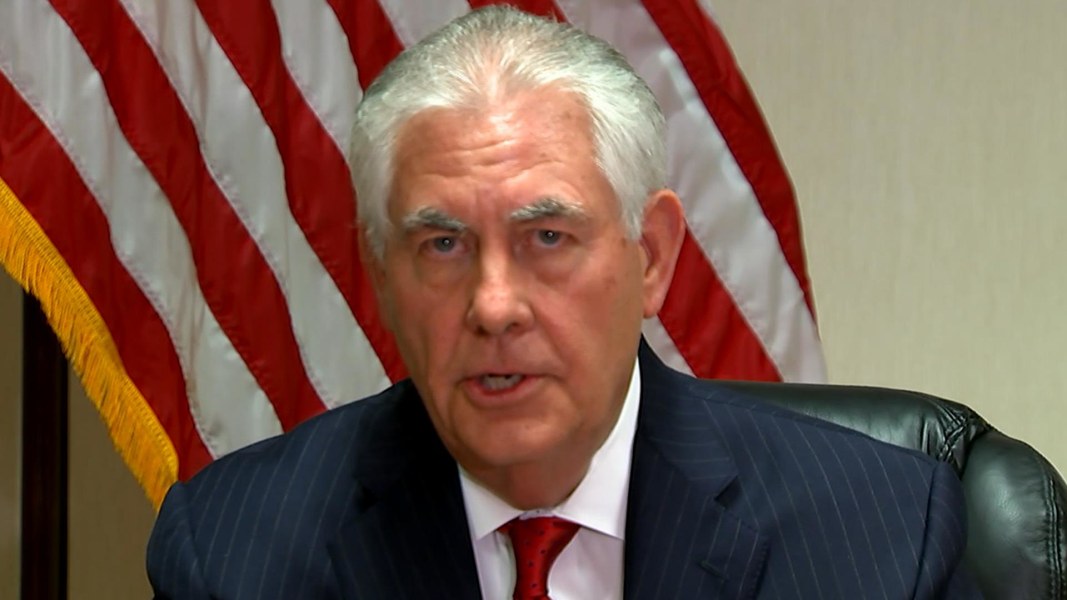U.S. Launches Missiles at
Syrian Base After
Chemical Weapons Attack
The United States launched dozens of cruise missiles
Thursday night at a Syrian airfield in response to what it
believes was the Syrian government's use of banned
chemical weapons blamed for having killed at least 100
people on Tuesday, U.S. military officials told NBC News.
Two U.S. warships in the Mediterranean Sea fired at least
50 Tomahawk missiles intended for a single target — Ash
Sha'irat in Homs province in western Syria, the officials said.
That's the airfield from which the United States believes the
government of Syrian President Bashar al-Assad fired the
banned weapons.
There was no immediate word on casualties. U.S. officials
told NBC News that people were not targeted and that
aircraft and infrastructure at the site, including the runway,
were hit.
Secretary of State Rex Tillerson and Nikki Haley, the U.S.
ambassador to the United Nations, have bluntly blamed
Syria for the chemical weapons attack, whose victims
included at least 25 children.
Tillerson told reporters on Thursday that "there is no doubt
in our minds" that the Syrian regime was responsible for the
attack. And in a combative speech at the U.N. Security
Council on Wednesday, Haley warned: "When the United
Nations consistently fails in its duty to act collectively, there
are times in the life of states that we are compelled to take
our own action."
NBC News reported Thursday that Defense Secretary
James Mattis briefed President Donald Trump on U.S.
military options, which included carrying out targeted
strikes against those responsible for Tuesday's attack.
There was no immediate reaction from Russia, which
Tillerson and Haley have accused of turning a blind eye
to Syria's transgressions.
"Russia cannot escape responsibility for this," Haley said
at the United Nations. "They chose to close their eyes to
the barbarity. They defied the conscience of the world."
Thursday, Tillerson urged Russia to "consider carefully
their continued support of the Assad regime."



No comments:
Post a Comment
Thanks for commenting. Your comments are needed for helping to improve the discussion.